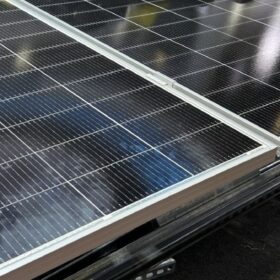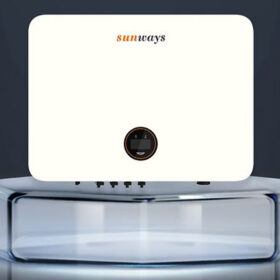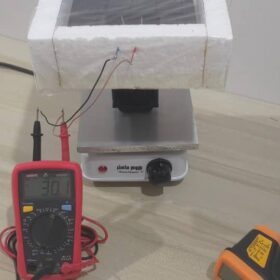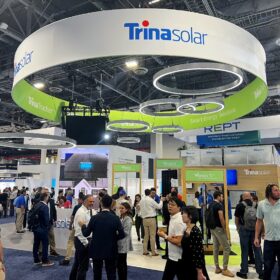Netherlands deploys 1.76 GW of solar in H1
The Netherlands added 1.76 GW of solar capacity in the first half of 2024, with 148,166 new PV projects. By the end of June, the country’s total installed PV capacity had reached 26.06 GW.
Colombian researchers design agrivoltaic system with hydroponic towers
Colombian researchers have designed an agrivoltaic system integrating hydroponic growing towers. The modular array, consisting of stackable 20 cm rings, creates a structure up to 2.5 meters tall, optimized for cultivating approximately 80 plants per square meter.
Perovskite-silicon tandem solar cell based on indium oxide buffer layer achieves 30.04% efficiency
Researchers in China have fabricated a perovskite-silicon tandem solar cell that utilizes an indium oxide sputtering buffer layer to protect the perovskite absorber and the electron transport layer from potential damages arising from the electrode deposition process. The new layer not only ensured this protection but also showed strong optical and electrical properties.
India on track to hit 132 GW of solar by 2026, says ICRA
ICRA, an Indian credit rating agency, says India could add 22 GW of solar capacity in fiscal 2025 and 27.5 GW in fiscal 2026, pushing the nation’s total installed PV capacity to 131.5 GW by March 2026, up from 82 GW as of March 31, 2024.
Australia eyes AUD 1 trillion in clean energy exports by 2060
The Superpower Institute, an Australian nonprofit think tank, says the nation’s clean energy export revenue could reach AUD 700 billion ($457 billion) based on current output levels, with potential growth pushing the figure to AUD 1 trillion by 2060.
Sunways unveils three-phase inverters for rooftop PV
Sunways’ new three-phase inverters have efficiency ratings of up to 98.6% and European efficiency ratings of 98.2%. They are available in five versions, with power outputs ranging from 15 kW to 30 kW.
Scientists create ‘affordable’ TEG-PV generator for off-grid, low-power applications
Scientists in Malysia have tested a system that combines a PV panel and thermoelectric generators (TEGs) and have found it offers potential for “moderate” nighttime power generation. It is suitable for small household applications such as LED lights, laptops, phone chargers, and wireless routers.
U.S. International Trade Commission to investigate Runergy, Adani for patent infringement
In response to a complaint filed by Trinasolar US, the ITC intends to determine whether Runergy and Adani illegally infringe Trinasolar’s TOPCon patents.
Chinese PV Industry Brief: JA Solar enters hydrogen business
JA Solar says it has launched a hydrogen business with the establishment of JA Hydrogen, a new unit based in Beijing with CNY 100 million ($13.8 million) of registered capital.
Looming Trump tariffs drive rush on imports, push shipping costs higher
Freight costs are rising as businesses rush to import goods ahead of higher tariffs promised by US President-elect Donald Trump on Chinese and European products.










